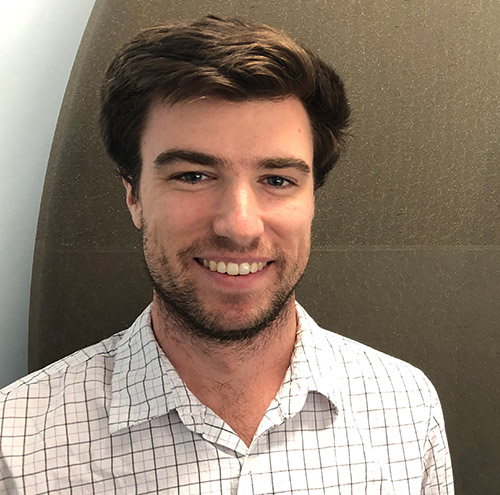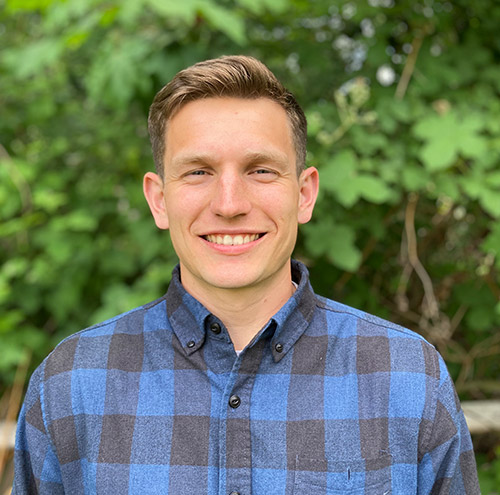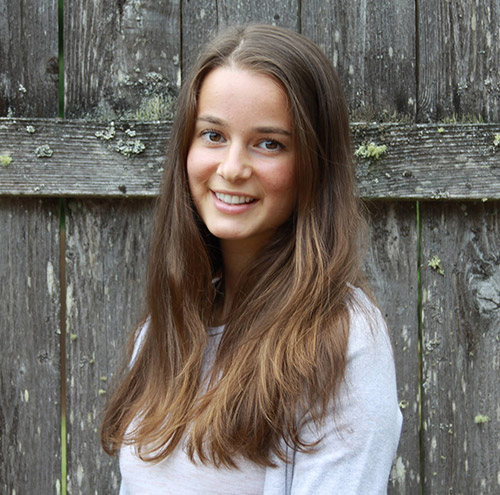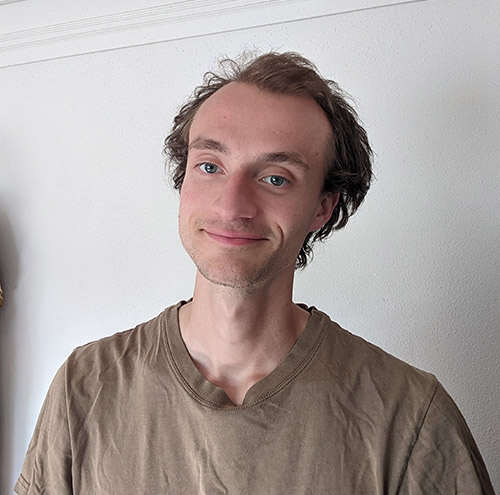June 11, 2021
The William E. Boeing Department of Aeronautics & Astronautics is pleased to announce the 2021 cohort of students honored by our department-wide Student Excellence Awards.
These awards recognize outstanding contributions from students in three critical arenas of academic work -- Research, Teaching and Service. Students were nominated by faculty, staff, supervisors, peers and students. Nominations included in-depth statements and supporting materials that were reviewed by members of the department faculty.
Meet the 2021 recipients of the A&A Student Excellence Awards!
Excellence in Research
This award recognizes distinguished achievements and sustained progress in research in our department. Major selection criteria include overall quality of research, significance of the work to the department and to the field and publications and professional presentations pertaining to the research.
Doctoral level: Charlie Kelly (PhD Candidate)
For Doctoral Dissertation Research in plasma aerocapture.
Adviser: Assistant Professor Justin Little

Charlie Kelly
Charlie’s research on plasma aerocapture out of SPACE (Space Propulsion and Advanced Concepts Engineering) Lab has led to significant breakthroughs in the physical understanding of the concept and how the physics drives system scaling. He is a thought leader in the field for detailing the use of plasma aerocapture in planetary exploration. Charlie is also advancing our understanding of the complex physical interactions between a plasma and high-speed neutral gas flow, and identified new regimes where the technology operates most efficiently. More recently, he integrated his theoretical model into a toolbox for mission design scaling of the concept and applied it to aerocapture of an orbiter around Neptune. He is now applying his model to study drag modulation during the aerocapture maneuver and its ability to increase mission reliability.
In addition to his exceptional analytical work, Charlie has advanced techniques in experimental research. Recreating the very-high-speed flow conditions needed to test plasma aerocapture poses a significant challenge. Wind tunnel and arcjet facilities are unable to reproduce the flow, so Charlie constructed a novel neutral beam facility using a biased metallic plate to neutralize and deflect ions from a high-density plasma, creating flow conditions to test the concept at subscales. To go along with this new plasma-based wind tunnel, he has completed a subscale magnetoshell system and demonstrated stable operation using a plasma injector.
Masters level: Ryan Howe (MS, 2021)
For Master Thesis Research: "Experimental Investigation of Mode II Fracture and Fatigue in Unidirectional Carbon/Epoxy Composite Beams"
Advisers: Assistant Professor Marco Salviato and CEE Professor Richard Wiebe

Ryan Howe
Ryan researches the fracture and fatigue behavior of composite plates to create models of plates under high dynamic load conditions typical of supersonic and hypersonic flight out of the Multiscale Analysis of Materials & Structures Lab. He has performed quasi-static and fatigue tests on geometrically-scaled End Notch Flexure (ENF) specimens made of unidirectional carbon fiber composites to improve our understanding of the process of cohesive crack nucleation and propagation as a function of the plate thickness and material properties.
One of the challenges Ryan tackled was characterizing the local slip displacement during the tests using Digital Image Correlation (DIC). This is a technique that allows measuring the full strain in the material provided that proper calibration and specimen setups are used. Ryan, an Air Force Officer, has a level of detail and accuracy in his analysis that will help develop better models for the Air Force.
Undergraduate level: Michelle Graebner (BS, 2021)
For Undergraduate Research: “Measuring Electron Temperature and Density of a Sheared-Flow-Stabilized Z-Pinch Plasma Exhaust Plume”
Adviser: Professor Uri Shumlak

Michelle Graebner
The sheared-flow-stabilized Z pinch could unlock fusion energy and enable rapid travel to deep space. Michelle’s research, performed out of A&A’s Flow Z-Pinch Lab, specifically advances the potential application of a Z pinch for space travel. She is investigating the conversion of the energetic plasma (over 107 Kelvin) into a directed kinetic energy rocket plume.
While chemical rockets have an obvious exhaust plume that indicates thrust. The same is true of a sheared-flow Z pinch which produces plasma exhaust. Her research examined the density and temperature of this plume. Her results show that the hotter gases move outward when the gas expands outside of the Z-pinch chamber, signaling acceleration and producing more thrust, which is a good indicator for successful space travel applications.
Michelle has mastered the diagnostic and can reliably characterize the plume. She has recently observed an interesting phenomenon where the plasma plume is collimated to a degree that has never been observed. This characteristic is extremely beneficial for efficient space propulsion applications, but the originating mechanism is currently unexplained. Such discoveries are often the beginnings of greater fundamental understandings and important technological advances.
Michelle’s careful measurements and analyses are topics in advanced graduate courses, but she was able to learn the material and provide insight into the observed collimation of the exhaust plasma, which would greatly simplify a fusion rocket design.
Excellence in Teaching
This award recognizes sustained commitment to and distinguished achievement in classroom teaching. This may include the ability to communicate material in an effective way, facilitating students' progress toward becoming independent problem solvers, the use of inclusive teaching practices that support all students and developing and using innovative teaching tools/techniques.
Daniel Crews (PhD Candidate)
For excellence in teaching undergraduate material and dedication to lab-based instruction.

Daniel Crews
Danny consistently meets the highest teaching standards and delivers on communication, dedication and professionalism. This year, in particular, saw Danny stand out as he helped facilitate communication among faculty, staff and students to make some of the hurdles of this remote year easier to surpass. He has delivered for many of the department’s faculty over the years, but this year he accepted the challenge to transition our entire junior-year electronics lab course to an online offering. He modified all of the previously in-class experiments, programming the Arduino controls and writing extensive documentation for the instructor and the students. He ensured the students had an effective junior-year lab experience. It’s also clear that he enjoys opportunities to interact with students, and he is clearly a popular TA.
Mengyuan Wang (PhD Student)
For excellence in teaching graduate material and dedication to supporting working students in the professional MAE program.

Mengyuan Wang
Mengyuan’s TA skills in Estimation Theory (AE549) and Linear Systems (AE510) kept both classes organized and running smoothly. She wrote detailed homework solutions each week, actively making sure that students had enough explanation to follow the solutions. She was particularly conscious of making sure math concepts were explained sufficiently for students who might not have as strong a linear algebra background. In AE510, she also jumped at the chance to give some of the main lectures. She gave an excellent series of talks on controllability and observability, one of the more challenging mathematical topics in linear systems. Her presentations were thorough, intuitive, and well-organized. She also made great efforts to connect with students throughout the year, something that was particularly difficult due to remote learning during the pandemic.
Excellence in Service
This award recognizes consistent commitment to and achievements in furthering our department's public service mission. This can include advancing an inclusive climate and culture, providing public outreach and education, leadership in student organizations or activities and/or mentoring of students.
Isaiah Cuadras (BS, 2021)
For service to the department through committee and representative engagement as well as his leading role in DEI efforts such as the Awake in Aero series.

Isaiah Cuadras
As the only undergraduate student on the A&A Diversity Committee, Isaiah was more than capable of respectfully holding his own during intense discussions. His biggest accomplishment, along with graduate students Sari Barczay and Sierra Adibi, was to create the Awake in Aero group, which served as a forum for the entire A&A community to come together to discuss relevant social issues affecting the aerospace engineering discipline and community.
Isaiah has also been a leader in the STEM Student Ambassador Leadership Program through the UW Louis Stokes Alliance for Minority Participation (LSAMP) program. Through this program, not only has he acquired valuable leadership skills in understanding the inequities in the STEM field, but also served as a mentor to numerous younger students. He often took the time to attend outreach and recruitment events in order to connect with individuals and groups that are underrepresented in the STEM disciplines. He has contributed greatly toward making the department more inclusive.